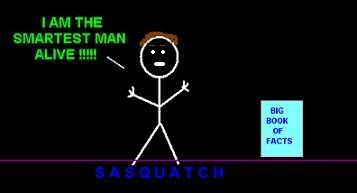Quite a few interesting points in there. I especially like pointing out the common liberal argument -- that women or minorities are just as good as anybody else, but somehow can't be successful without somebody else controlling them or helping them (which, in turn, weighs down the rest of us).
I also like the pointing out of a fact well-known by most pro-lifers: It's not women keeping abortion legal, it's men that it benefits most. While many abortion advocates claim that only men are pro-life, trying to take that "right" away from women so that men can control them more easily, the opposite is true: if only women were to vote on the legality of abortion, it would become no longer legal. The thing that confuses me is how few rights men have over their own unborn child (yet many still support it), and how an unborn child is considered a child in some cases and nothing more than a parasite in others, depending on what the mother feels about it at the time. I mean, really -- if you are pregnant and we end up fighting, and it results in the death of your unborn child, I could be charged with murder or manslaughter. But if you decide that a child is too much to take care of until you give birth and put it up for adoption and have its brain sucked out by a "doctor", that's perfectly legal -- and the government will even help pay for it.
I'm glad to see more arguments against abortion that aren't based solely on religion -- it makes some people realize that those types of arguments exist, instead of retaining their ability to sit in a corner and stereotype those against abortion as a bunch of inbred Bible-thumpers.










 Reply With Quote
Reply With Quote













Bookmarks